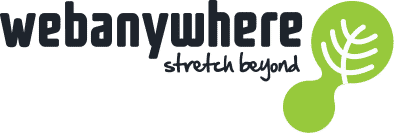The Benefits of LMS for Healthcare Organizations

The healthcare sector faces endless challenges with keeping pace with continuous education, skill enhancement, and strict regulatory compliance, all crucial for high-quality patient care and operational efficiency. This dynamic environment necessitates an efficient approach to managing ongoing learning and adherence to standards.
Learning Management Systems (LMS) provide a strategic solution. These sophisticated platforms manage and deliver educational content, track progress, and streamline the compliance process. In healthcare, an LMS is essential, serving as a central hub for maintaining up-to-date professional knowledge, ensuring consistent training, and meeting regulatory mandates, all contributing to improved patient outcomes.
In this article, we explore the compelling advantages of LMS in healthcare. We will highlight how these systems are instrumental in simplifying administrative tasks, promoting continuous learning, and standardizing training protocols. The insights provided will demonstrate the indispensable nature of LMS in enhancing healthcare service quality and operational effectiveness.
Understanding LMS in Healthcare
An LMS, or Learning Management System, is a digital platform that delivers, documents, and tracks educational courses and training programs. Within the healthcare sector, an LMS plays a crucial role by providing a unified repository for all training content, thereby simplifying the process of continuous professional development for healthcare practitioners. This system is tailored to meet the rigorous demands of the healthcare environment, accommodating the need for ongoing education due to rapidly evolving medical practices, technology, and regulatory guidelines.
The functionality of an LMS extends beyond just hosting courses. It encompasses a range of features integral to effective learning and administration. One primary aspect is online course management, allowing for the creation and distributing of timely and relevant educational content. Additionally, it facilitates tracking learner progress, ensuring that healthcare professionals meet their educational milestones and performance standards. Another significant component is certification management, a feature indispensable in the healthcare sector, where maintaining certified practice is mandatory.
The Benefits of LMS for Healthcare Organizations
In the ever-evolving field of healthcare, maintaining the highest standard of patient care, operational efficiency, and continuous professional development is paramount. Learning management systems have emerged as a transformative solution, addressing various educational and administrative challenges faced by healthcare organizations. Here are eight compelling benefits of integrating LMS into the healthcare sector.
Ensuring Regulatory Compliance and Standardization
Regulatory compliance in healthcare is paramount, involving strict adherence to various standards, including HIPAA and JCAHO. These regulations, focusing on patient safety and data privacy, form the backbone of quality healthcare delivery, holding establishments to a standard that ensures trust and reliability in their services. Non-compliance isn’t just about legal repercussions; it also compromises patient trust and the integrity of healthcare institutions.
Learning Management Systems facilitate seamless adherence to these regulations by ensuring that healthcare professionals’ certifications and knowledge are always current. LMSs handle the meticulous work of tracking certification expirations and training completions, providing alerts for upcoming renewals, and ensuring continual alignment with state and federal regulations. This comprehensive management is crucial in avoiding lapses leading to compliance breaches and penalties.
Learning management systems also contribute significantly to standardizing training materials across the board. It allows healthcare organizations to disseminate information and training modules uniformly, ensuring that every staff member, regardless of their specific role or location, accesses the same material and receives consistent training. This uniformity is crucial for meeting mandated competencies, providing constant patient care, and fostering a sense of cohesion and shared standards among staff throughout the organization.
Streamlining Continuous Professional Development
Continuous professional development is indispensable in healthcare due to constant medical advancements and evolving patient needs. Healthcare professionals must stay informed about the latest treatments, technologies, and protocols to provide the highest standard of care, making lifelong learning an essential component of healthcare practice.
LMS fortifies this need by embedding a culture of continuous and autonomous learning. It provides a flexible and centralized platform where professionals can access up-to-date training materials, participate in innovative learning experiences, and monitor their progress, all tailored to their pace and convenience. This systematic approach maintains and elevates professional standards across the healthcare institution.
Additionally, the versatility of LMS content delivery is instrumental in personalized learning experiences. Offering an array of resources — from on-demand e-learning courses and interactive webinars to comprehensive workshops — LMS caters to various learning modalities and preferences. This inclusivity ensures that professionals, regardless of their specialties or schedules, can access and benefit from critical educational content, fostering comprehensive professional development.
Improving Operational Efficiency and Patient Outcomes
Effective training through an LMS significantly bolsters staff proficiency and confidence in their roles. When well-informed and up-to-date, healthcare professionals make more accurate decisions, reducing errors and enhancing patient care quality. This improvement in performance and assurance among staff directly translates to better patient outcomes, establishing a more reliable and efficient healthcare environment.
LMS also play a strategic role in enhancing healthcare delivery by enabling tracking and analyzing performance metrics. These systems can identify learning gaps, monitor progress, and provide data-driven insights into staff performance and patient care trends. Analyzing this data enables healthcare organizations to pinpoint areas needing improvement and implement targeted interventions, elevating the standard of care.
Enhancing Communication and Collaboration
One of an LMS’s less highlighted yet vital roles is its function as a communication hub among healthcare professionals. Centralizing information, updates, and notifications ensures that all healthcare team members are on the same page, reducing discrepancies in patient care and other collaborative efforts. This streamlined communication is crucial in a fast-paced environment where timely information exchange can significantly impact patient outcomes.
Learning management systems advocate for a collaborative learning culture, creating spaces where professionals can share insights, experiences, and best practices. This aspect of shared learning not only promotes a sense of community and teamwork but also enhances the collective knowledge and competencies of the healthcare staff. Professionals learning from each other fosters a holistic and multi-faceted approach to patient care.
LMS platforms also incorporate features that encourage interactive dialogue, feedback, and even consultation with experts in the field. Forums, comment sections, or live Q&A sessions within the LMS provide avenues for real-time engagement and support. These interactive elements make learning a two-way process and build a supportive network that reinforces learning and professional growth.
Reducing Costs and Allocating Resources Efficiently
Implementing an LMS can lead to substantial cost savings for healthcare organizations. One significant area of savings comes from minimizing the requirements for physical training venues and the logistical costs associated with organizing in-person sessions, including travel and accommodation expenses for attendees. Transitioning to a digital platform makes training more accessible, allowing professionals to engage from anywhere, which directly reduces overhead costs.
Using digital records and analytics within an LMS also provides an operational advantage. The system’s ability to track learning progress and outcomes generates valuable data informing resource allocation, staff deployment, and planning for future educational investments. This precise resource management ensures that human and financial investments are optimized for maximum organizational benefit.
Over time, these efficiencies translate into considerable financial benefits. Enhanced staff competence and streamlined operations reduce the likelihood of costly errors and patient readmissions. Moreover, maintaining a consistently high standard of service through well-informed staff helps build the organization’s reputation, potentially increasing patient trust and, consequently, the demand for its services. The cumulative effect of these factors contributes to the organization’s financial health and sustainability.
Adapting to Future Trends and Technological Advancements
LMS platforms stand at the forefront of adaptability, particularly in their capacity to integrate emerging technologies like virtual reality (VR) or augmented reality (AR) into training programs. These immersive technologies offer realistic, hands-on experiences, enabling healthcare professionals to engage in safe practice scenarios without real-world risks. This advanced technological integration prepares staff for complex procedures and situations, enhancing their confidence and competence.
Additionally, an LMS is instrumental in keeping healthcare professionals abreast of future trends and innovations. The system’s ability to consistently update and distribute new learning materials ensures that healthcare staff are always informed about the latest developments in medical science and patient care strategies. This continuous flow of current information is crucial for healthcare organizations to maintain relevance and efficacy in a rapidly evolving field.
Furthermore, scalability is a critical feature of modern LMSs, allowing these systems to accommodate the expanding needs of growing or evolving healthcare organizations. Whether adjusting to increased user numbers, expanding into new medical disciplines, or incorporating updated compliance standards, LMSs can be tailored to meet diverse and dynamic organizational requirements. This flexibility ensures that healthcare entities are equipped not just for the challenges of today but are resilient and adaptable for the future.
Integrating LMS for a Healthier Tomorrow
Integrating Learning Management Systems within the healthcare sector marks a transformative approach to professional development, regulatory compliance, and overall patient care quality. These systems are not just tools for learning but are strategic assets in streamlining communications, reducing operational costs, and enhancing service delivery.
The adaptability of LMSs ensure that healthcare professionals are current with their knowledge and skills and prepared for future technological advancements and clinical practices. This readiness is pivotal in fostering a healthcare environment that is both responsive and proactive, addressing patient needs with the highest standards of care.
Looking for a healthcare LMS, get in touch for a free demo.

